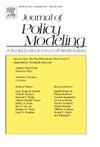Second-leg home advantage no more? The impact of video assistant referee and no away goals rule in elite soccer
IF 3.1
2区 经济学
Q1 ECONOMICS
引用次数: 0
Abstract
Does hosting the return leg in two-legged soccer ties improve a team’s advancement chances, as some contend, or is this perceived second-leg home advantage merely an illusion, as others argue? This question of competitive fairness is increasingly pertinent in today’s high-stakes soccer environment. While a definitive answer remains elusive, recent rule changes in European soccer, namely the introduction of the video assistant referee (VAR) system and the abolition of the away goals rule (AGR), have added new complexities. Analyzing 906 UEFA Champions League ties (2000/01–2023/24) via weighted logistic regression with robustness checks and team strength controls, we find that a modest second-leg home advantage appears only when AGR is in effect without VAR. Introducing VAR alongside AGR seemingly reverses that advantage, albeit lacking robustness, while neither rule alone nor both absent yields an order effect. Notably, VAR offsets the second-leg home advantage solely in AGR’s presence, while AGR creates that advantage solely in VAR’s absence. Although team quality remains the primary driver of success, these findings illustrate how seemingly innocuous regulatory shifts can redefine competitive fairness. Our results thus offer timely insights for policymakers aiming to design fair and strategically engaging formats in elite European soccer, particularly given the dearth of research on the subject.
第二回合主场优势不复存在?视频助理裁判与无客场进球规则对精英足球比赛的影响
是像一些人所说的那样,在两回合的足球比赛中,主场进行第二回合比赛会提高球队的晋级机会,还是像其他人所说的那样,这种所谓的第二回合主场优势仅仅是一种错觉?在当今高风险的足球环境中,竞争公平的问题变得越来越重要。虽然一个明确的答案仍然难以捉摸,但最近欧洲足球规则的变化,即视频助理裁判(VAR)系统的引入和客场进球规则(AGR)的废除,增加了新的复杂性。通过对906场欧冠比赛(2000/01-2023/24)的鲁棒性检验和球队实力控制进行加权logistic回归分析,我们发现,只有当AGR在没有VAR的情况下有效时,第二回合主场优势才会出现。虽然缺乏鲁棒性,但引入VAR和AGR似乎会逆转这种优势,而单独规则或不规则都不会产生顺序效应。值得注意的是,VAR仅在AGR存在的情况下抵消了第二回合主场优势,而AGR仅在VAR缺席的情况下创造了这种优势。虽然团队质量仍然是成功的主要驱动力,但这些发现说明了看似无害的监管变化如何重新定义竞争公平。因此,我们的研究结果为政策制定者提供了及时的见解,这些政策制定者旨在为欧洲精英足球设计公平和战略参与的形式,特别是考虑到这一主题的研究缺乏。
本文章由计算机程序翻译,如有差异,请以英文原文为准。
求助全文
约1分钟内获得全文
求助全文
来源期刊

Journal of Policy Modeling
ECONOMICS-
CiteScore
6.20
自引率
11.40%
发文量
76
期刊介绍:
The Journal of Policy Modeling is published by Elsevier for the Society for Policy Modeling to provide a forum for analysis and debate concerning international policy issues. The journal addresses questions of critical import to the world community as a whole, and it focuses upon the economic, social, and political interdependencies between national and regional systems. This implies concern with international policies for the promotion of a better life for all human beings and, therefore, concentrates on improved methodological underpinnings for dealing with these problems.
 求助内容:
求助内容: 应助结果提醒方式:
应助结果提醒方式:


